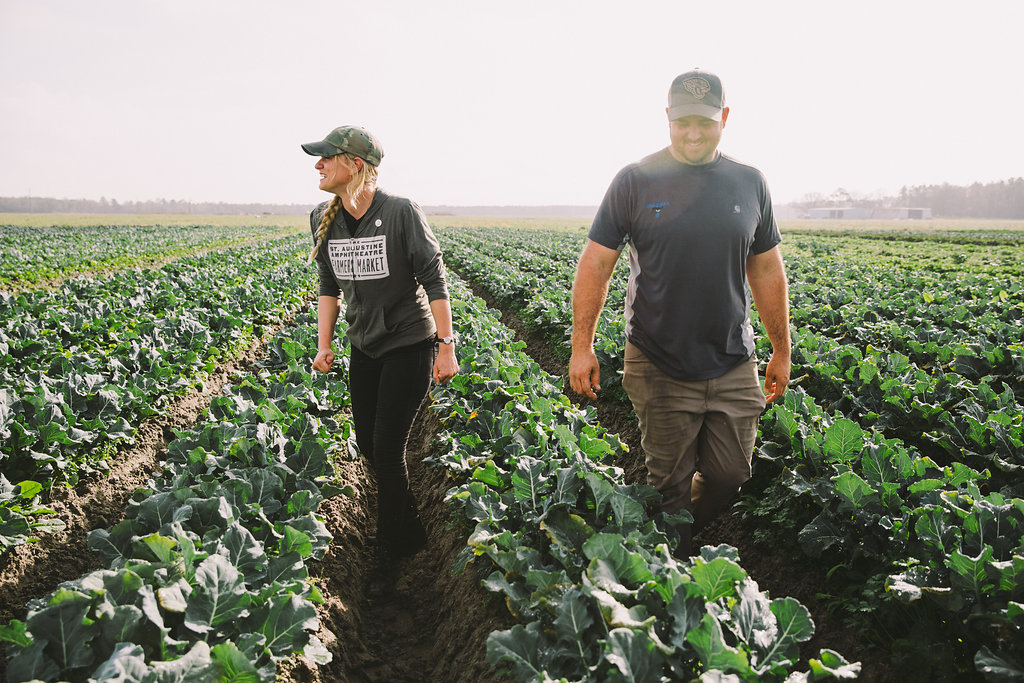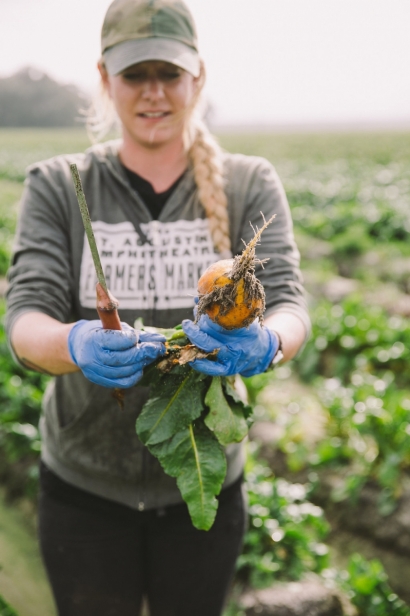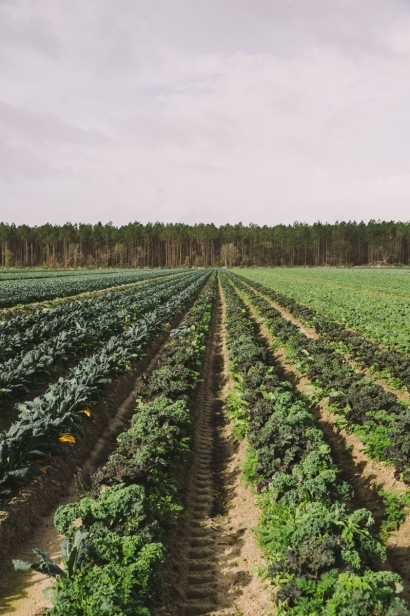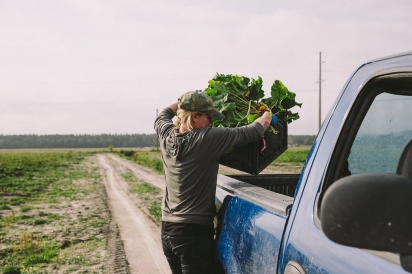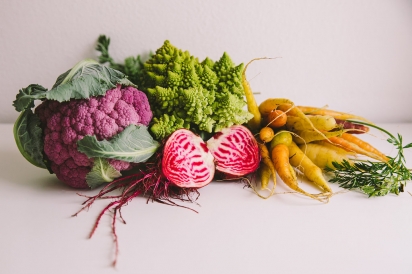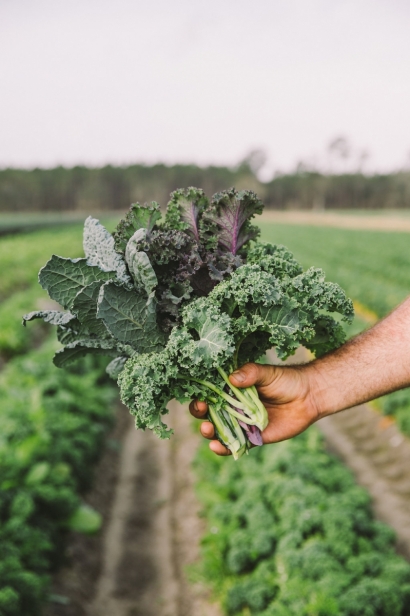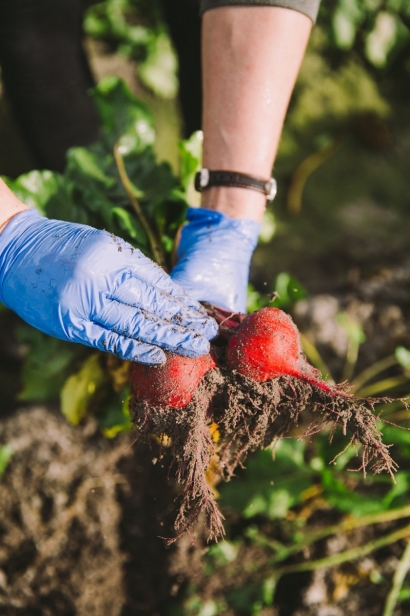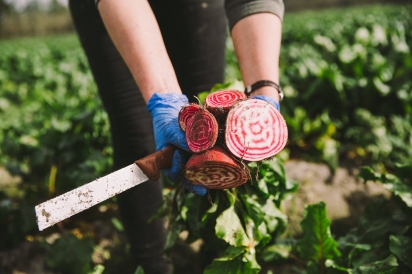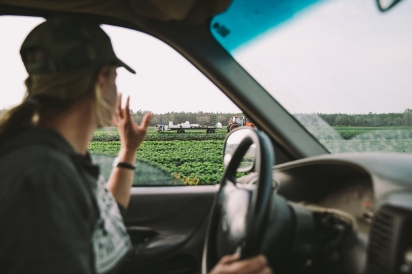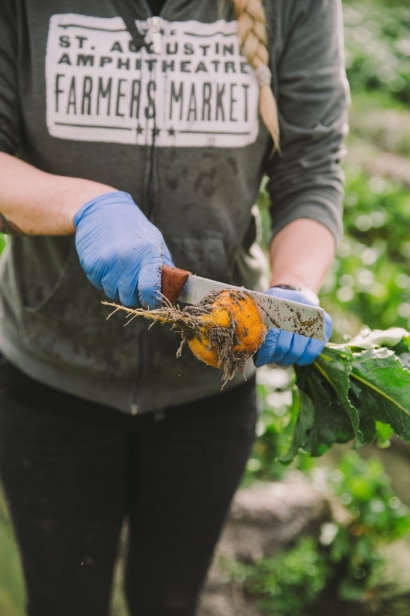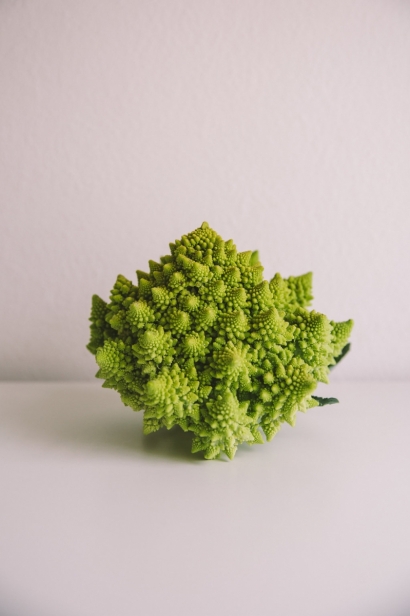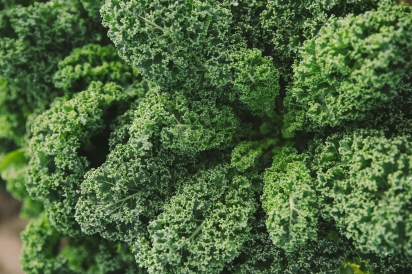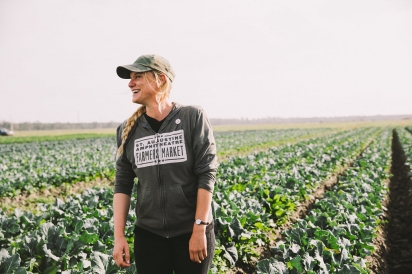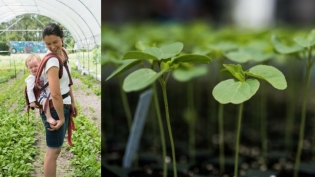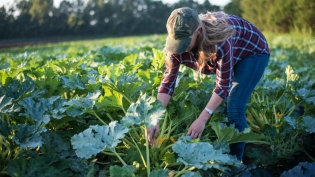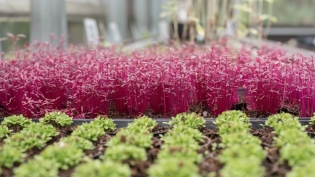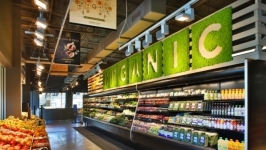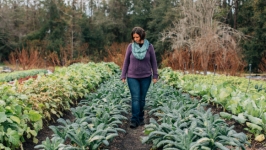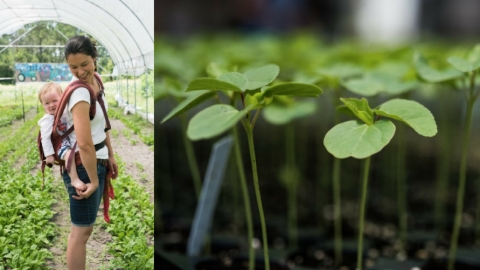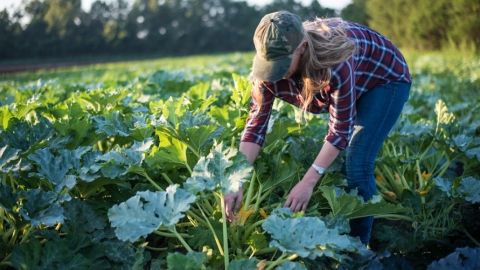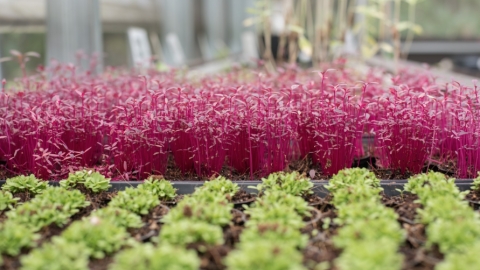The State of Organic Farming in Northeast Florida
According to a recent USDA survey, consumer demand for organic foods hit an all-time high in 2016 with $43 billion in sales. That’s an increase of $3.3 billion in just one year, making organic foods 5 percent of total food sales in the U.S. With nearly 40 percent of that market, organic fruits and vegetables are currently a $15.6 billion industry and make up 15 percent of the total produce Americans eat. With this demand, it’s not surprising that the number of organic farms has increased substantially as well. Results from the USDA’s 2016 Certified Organic Survey show there are 14,217 certified organic farms in the U.S., which represents an 11 percent increase from 2015. Likewise, the number of those acres certified organic in the U.S. was 5 million, which is a 15 percent increase since 2015. In 2016, certified organic farms and ranches produced and sold $7.6 billion in certified organic commodities, a 23 percent increase from 2015.
An ecologically based production system, organic farming minimizes health risks to humans, animals and the environment. This type of farming, pioneered by English botanist Sir Albert Howard in the early 1900s, uses non-synthetic inputs and management strategies that enhance soil fertility, optimize pest management and diminish soil erosion. This helps preserve the overall biological diversity of the ecosystem and conserve natural resources. Organic farming production systems avoid synthetic pesticides and fertilizers, irradiation and genetically engineered crops. Fruits, vegetables, grains, herbs, flowers, meat, eggs, dairy products and fiber are all types of farm products that can be produced organically.
The emergence of large-scale use of synthetic pesticides, fertilizers and irrigation post-World War II, as part of the mechanization of farming, was at odds with the philosophies of soil health brought about by Howard and served as a fork in the road for farmers who preferred to minimize environmental impacts by sticking with traditional farming practices. As consumer demand for organic food began to increase in the 1990s, so did the demand for more farmland in organic production, as well as for the establishment of more uniform organic production standards.
Significant grassroots efforts through the years led to the creation of the National Organic Standards Board, which was authorized by the Organic Foods Production Act of 1990 and is responsible for establishing production standards to ensure protection for consumers on all products labeled and marketed as organic. This was the birth of the U.S. Department of Agriculture National Organic Program, or NOP. The NOP, which is part of the USDA Agricultural Marketing Service, maintains a list of certified organic operations, provides accreditation for certifying agents, establishes policies for imports and exports, investigates complaints and takes action on regulatory violations. It also oversees the cost share programs for farmers and provides education and training to staff, agents and stakeholders.
In Florida, agriculture has followed the national trend with organic farming becoming the fastest growing sector in the industry. Certified organic farming occurs on nearly 130 farms in Florida across more than 11,000 acres with a production value of more than $72 million annually. However, the total number of organic farms is actually higher, since operations with less than $5,000 in gross sales of organic goods aren’t required to be certified and are not counted in the survey. Many smaller, non-certified farms are contributing significantly to local food systems, especially at farmers’ markets and direct-to-restaurant sales. Furthermore, with the continually increasing national demand from consumers for organic produce, many conventional Florida farmers are becoming certified or certifying a portion of their production acreage.
So what does it really mean to be certified organic and are there benefits to farmers and consumers? Under Florida law, products can only be certified organic if no synthetic chemicals have been applied to the land on which it was produced for a minimum of 3 years. Also, farmers must maintain an organic management plan, keep detailed records of their practices and successfully pass an annual inspection by a certifying agency. A farm that claims to be organic but fails inspection could receive a $10,000 fine. However, for farmers who are USDA-certified organic, there are definite benefits. As a certified producer, farmers can label their commodities with the official USDA-certified organic label and receive a premium price for their products. They can also have access to fast-growing local, regional and international markets, as well as additional funding and technical assistance. For consumers, the label means product assurance and that they are supporting sustainable production practices.
In Northeast Florida, there are only a handful of USDA-certified organic farms, but there are numerous organic commodities produced and sold locally. Chances are, if someone has visited a restaurant in St. Augustine or Jacksonville, or any of Northeast Florida’s farmers’ markets, they’ve had organic produce, certified or not, from one of the area’s local farms.
For Native Sun Natural Foods Markets in Jacksonville, it’s all about organic, where more than 150 organic produce items are available at any given time.
“We have worked hard to build relationships with organic farms in the Northeast Florida area over the past 20 years,” Native Sun owner Aaron Gottlieb said. “The rewards for focusing on local, organic produce are that you eat fresh fruits and vegetables when they are fresh, in season, beautiful and packed with flavor. In addition, we are lucky to pay the farms directly, which has a larger impact on the farmers’ lives.”
But what Gottlieb said he finds concerning is when he sees the words “organic” and “local” being used synonymously.
“Local produce is good for a lower carbon footprint, but is not necessarily free of synthetic pesticides and fertilizers. We believe food that is locally grown with organic methods is the tastiest, most nutritious and the best for your body.”
Access to fast-growing organic markets is the reason why one farmer from Northeast Florida has decided to go through the USDA organic certification process and expense for some of his acreage.
“Farming conventionally, and now organically, for the same type of produce has opened new marketing opportunities I wouldn’t have had with just being in conventional production,” said Ben Wells, owner of Ben Wells Produce in St. Augustine.
Wells currently has 80 acres of broccoli, kale, cabbage, beets and spinach in organic production. He’s two weeks into his first harvest and is shipping his product locally, regionally and all over North America, including to chain retail stores and wholesale markets. Wells completed the certification process, and though it’s been an expensive one, he believes it will be worth it.
“Organic production is more expensive,” he said. “There are higher input costs on products for fertilizers and pest control products, but there are also higher returns.” Wells said organic production has been a learning process of understanding what kinds of yields to expect and what to expect overall.
For farmers wanting to transition to organic production, the USDA’s Farm Service Agency provides cost share and other funding opportunities for receiving and maintaining organic certification, establishing field buffers, as well as for helping with insurance, crop losses and soil and water conservation.
The demand for skilled workers in organic production has also increased substantially. The University of Florida Institute of Food and Agricultural Sciences (UF/IFAS) horticultural sciences department has an academic program to help meet those needs. In fact, UF was one of the first institutions in the U.S. to offer a science-based organic agricultural undergraduate degree program. UF/IFAS has many ongoing research projects that focus on developing organic and sustainable production practices as a way to ensure preservation of biological diversity while producing high-quality fruits and vegetables to meet the ever-increasing consumer demands for organic foods.
In addition, UF/IFAS Extension Small Farms and Alternative Enterprises, as well as UF/IFAS Extension offices in all 67 Florida counties, offer many training opportunities and resources that will benefit organic producers and their employees as well as individuals interested in starting organic production.
For more resources and training opportunities, visit the UF/IFAS website and calendar of events or contact your local UF/IFAS Extension office.


